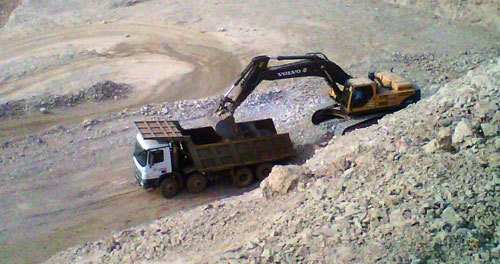Ban on Gravel (Bajri) Mining in Rajasthan has been lifted by Supreme Court orders
Public should be able to procure gravel (bajri) at cheaper rates
Apex court accepts CEC recommendations...illegal miners to be dealt with strictly
The Supreme Court has lifted its ban on gravel mining in Rajasthan. Gravel/River bed Sand Mining, also known as Bajri Khanan (बजरी खनन) in local terms was banned vide the Supreme Courts orders in November 2017. In today's hearing of the Special Leave Petition (Civil) No. 10587 of 2019 (Petitioner/s: Bajri Lease LoI Holders Welfare Society through its President; Respondent/s: The State of Rajasthan & Ors.), the three judge bench of Justice Nageswara Rao, Justice BR Gavai and Justice BV Nagarathna accepted all the recommendations of the Central Empowered Committee (CEC) formed for this purpose and lifted the ban, suggesting that the mining can be now done but keeping the environment in mind.
At the time that gravel mining was banned by the Supreme Court in 2017, mining was taking place in around 45 mines. Mining was also taking place with the permission of the state government but without the environmental NOC. This was possible due to the amendments in the "1986 Rules" (Rajasthan Minor Mineral Concession Rules, 1986) in 2012 wherein sand mining was permitted through the then existing system of Royalty Collection Contract and Issue of Temporary Work Permit till the Environmental Clearance is granted.
Why was the CEC incorporated
Following the orders of the Supreme Court on 16 November 2017, all Letter of Intent (LoI) pertaining to Gravel Mining were terminated by the Rajasthan Government on 31 March 2018, on completion of the stipulated period of 5 years. While the LoI holders objected to this order, the Supreme Court maintained the order and continued with the termination of the Letters of Intent. In February 2020, however, the apex court directed the Central Empowered Committee to study the matter in detail and submit a comprehensive report in 6 weeks. Due to the COVID Pandemic, howver, the task could not be completed in 2020. The CEC submitted its report on 23 December 2020 with its recommendations. All the recommendations made by the CEC except for the one that recommends imposing exemplary penalty of RS 10 Lakh per vehicle and Rs 5 lakh per cubic meter of sand seized, in order to act as a deterrent, have been aproved by the apex court for implementation.
*The above post has been compiled on the basis of a report published in Media and as available on the Supreme Court e-Portal
To join us on Facebook Click Here and Subscribe to UdaipurTimes Broadcast channels on GoogleNews | Telegram | Signal



